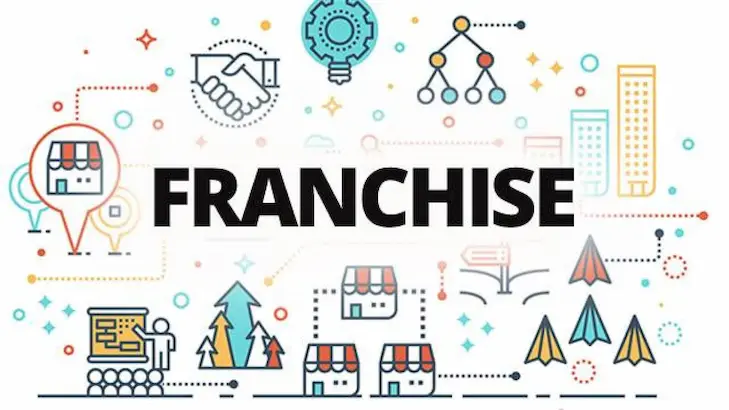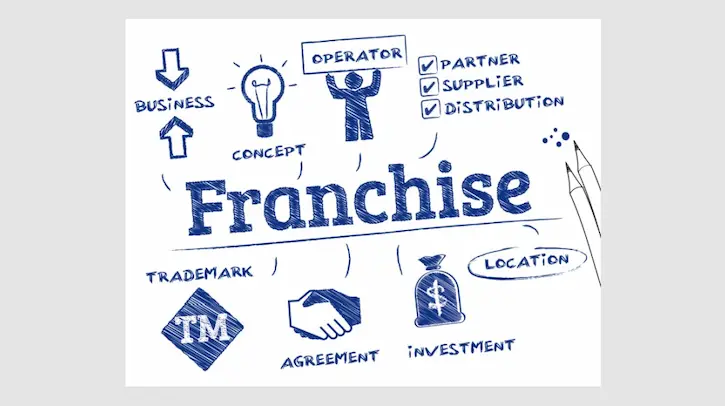Franchising is an increasingly popular business strategy used by companies to expand their operations and reach new customers. It has become an important tool for economic development, providing entrepreneurs with low-cost entry into the business world and creating new job opportunities.
Franchising has the potential to create a ripple effect of economic growth, from the franchisor and franchisee to their local community.
It offers an attractive option for entrepreneurs, as it provides access to an established brand, established products or services, and the support of an experienced franchisor. This support can help the franchisee to get their venture off the ground quickly and with a minimum of risk.
Additionally, it can stimulate job creation and economic growth by increasing the number of businesses in a given area, boosting consumer spending, and generating tax revenues. Thanks to the various benefits it offers, franchising is becoming an increasingly popular business strategy and a powerful tool for economic development.
What is Franchising?
Franchising is a business model where a company allows another party, known as the franchisee, to use its name, logo, and products or services in exchange for a fee. For example, a franchisee of Batteries Plus agrees to adhere to the franchisor’s guidelines and standards, which include operating and marketing guidelines.
This model offers an appealing option for entrepreneurs who want to start their own businesses with the backing of an established brand, established products or services, and support from the franchisor.
By choosing the franchise, entrepreneurs can benefit from the franchisor’s experience and resources, including training, marketing, and ongoing support. This can help franchisees to launch their business quickly and with minimal risk, as they have access to proven business practices and a recognizable brand name that can help attract customers.
Franchising has become a popular and successful business strategy in many industries, including food and beverage, retail, and service-based businesses.
How Franchising Can Help Create Jobs
Franchising has the potential to generate employment in several ways. Firstly, franchisees typically hire employees from the local community to operate their franchises, which creates direct job opportunities.

These jobs can range from entry-level positions to managerial roles, depending on the size and complexity of the franchise operation. Secondly, franchising can indirectly create employment opportunities through increased consumer spending.
When a new franchise of Generator Supercenter opens in a particular area, for example, it can attract customers who might not have otherwise visited the area. This increase in foot traffic can result in a demand for additional goods and services, which can lead to the creation of new jobs in related industries.
This includes suppliers, vendors, and service providers who support the franchise operation, as well as other local businesses that benefit from increased spending in the area. Lastly, successful franchises have the potential to expand and create new franchises, which can generate employment opportunities in the long term.
This growth can create a chain reaction of job creation as new franchises hire employees and increase consumer spending in their respective areas. Overall, franchising has the potential to contribute to the growth and development of local economies by creating jobs, supporting local businesses, and stimulating economic activity.
Franchising as a Tool for Economic Development
Franchising has emerged as a powerful tool for economic development, particularly in developing economies where entrepreneurship and small business growth are critical to job creation and poverty alleviation.
Franchising involves the licensing of an established business model to entrepreneurs, who then open and operate new franchises under the same brand name and business system. The franchisor provides training, support, and ongoing assistance to the franchisee, while the franchisee invests capital, manages the franchise, and pays fees and royalties to the franchisor.

One of the main advantages of franchising as a tool for economic development is that it provides a ready-made business model that has already been tested and proven successful.
Franchisees can avoid the risks and uncertainties associated with starting a new business from scratch, as they have access to a business system that has already been fine-tuned and optimized for profitability. This can help to reduce the failure rate of small businesses, which is often high due to a lack of experience, resources, and market knowledge.
Franchising can also help to stimulate economic growth by creating new jobs and income-generating opportunities. Franchisees typically hire local employees to operate their franchises, which can help to reduce unemployment and increase consumer spending in the local economy.
Additionally, franchising can create indirect employment opportunities by increasing the demand for goods and services that support the franchise operation, such as suppliers, vendors, and service providers.
Furthermore, franchising can promote regional development by encouraging the spread of successful business models and supporting local entrepreneurship. Franchise systems can be easily replicated in different regions and countries, which can help to create a chain reaction of job creation and economic growth.
Successful franchise systems can also attract investors and entrepreneurs, who can replicate the business model in new locations, further increasing the impact of franchising on economic development.
Final Thoughts
In conclusion, franchising has proven to be a powerful tool for economic development and job creation in both developed and developing economies. By providing a proven business model, creating new job opportunities, promoting regional development, and formalizing businesses, franchising has the potential to drive economic growth and alleviate poverty.
However, challenges such as legal and regulatory barriers, financing and capital access, market saturation, and competition must be addressed to fully unlock the potential of franchising. As such, policymakers and franchisors must work together to create an enabling environment for franchising to thrive and realize its full potential as a driver of economic development and job creation.